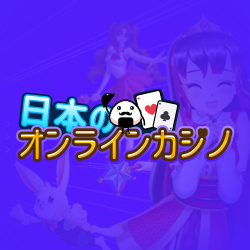The Elder Scrolls IV: Oblivion Xbox 360 Review
Oblivion may very well be the wisest game purchase you’ll ever make, as such is its size, you won’t be needing another game for months to come. With a gargantuan world to explore and a possible final gameplay time of over 100 hours, the game is vast in more ways than one.
Before you can set foot with wide-eyed wonder into this beautifully realized world, you must first- via an extensive character creation tool- create your characters appearance. All manner of facial features and body shapes can be tweaked, essentially allowing you to create any type of character you desire, even yourself.
The choice extends to more than just appearance, as a bit later on you are asked to choose your character class. There’s many premade classes to choose from and the game advises one based on your playing style up until that point, but perhaps the more attractive choice is to create your very own class, allowing you to pick all the strong and weak points of your warrior by hand. Any fantasy character imaginable can be created from the sneaky assassin and mighty warrior to even a jack of all trades. It’s certainly not a game where anyone can bemoan the lack of a character to suit their playing style.
When you leave the first dungeon and step into the big wide world for the first time, it’s hard not to gaze in open mouthed wonder at the massive world that lies ahead. Such is its size in comparison to both the relatively small opening dungeon that preceded it as well as in comparison to much smaller game worlds, you could very well feel like a caged animal being released into the wild for the very first time. With an often spectacular draw-distance, it looks very nice too, but from time to time is interrupted by brief loading pauses to load in new grass and whatnot and this prevented us from becoming fully immersed in a beautiful world that we so desperately wanted to be well and truly sucked into. It also boasts a marvellous soundtrack from musical maestro: Jeremy Soule and stunning visuals that really showcase the power of Microsoft’s new machine.
From this point on, the designers let you off the lead so to speak. Whether, you want to explore and plunder the many dungeons littered around the map, or hunt for flowers and the like (which act as ingredients to brew new potions), play the many side missions strewn around the many towns and settlements, close all the Oblivion gates or just focus on getting through the main narrative. The designers offer you an expansive world to explore ( the new fast travel feature is an absolute godsend) and leaves you to do whatever you want in it, which is arguably the way many developers should be crafting their games.
Whatever you choose to do, you’ll almost certainly be partaking in combat. The combat was regarded as one of the weaker aspects of the critically acclaimed previous game, Morrowind, but is generally revered as an improvement here, it could evidently still do with some refining though and whilst functional, remains as one of the games weaker points.
Since there’s no lock on function, battles can be more awkward than need be and as a result fights with groups of enemies in particular can really test ones patience, furthermore there‘s no visual indication that you‘re making contact with an enemy as their bodies simply don‘t react to your strikes, right up until the final blow is delivered, which then sees bodies contort and roll down steep inclines, all thanks to the ever fantastic rag doll physics. Helpfully, items, magic and weapons can be all hot-keyed to allow for quick access to them as well as to keep menu wading to a minimum.
The game works on the notion “that the more you do something the better you become at it”. So for example regular use of a particular weapon will allow you to become more proficient with it, thus unlocking new moves, whilst lots of jumping will eventually allow you to attack whilst leaping. Like just about every other area of the game, there’s plenty of choice here and it’s left entirely up to you on what skills you work at improving, but bear in mind raising your major skills is the only possible way to ascend to new levels.
Stop off at a town and you’ll realise things are much more organic than your average RPG. Whereas townsfolk in the majority of other RPGS follow prescript paths, here the Radiant AI allows them to perhaps randomly engage in admittedly contrived conversations with one another, or perhaps stop for a bite to eat at their local pub, characters even go to bed at night. Whilst it doesn’t always succeed, Radiant AI does go some way to making it feel as if you have stepped into a living breathing world.
Being such an ambitious game, it’s hardly a surprise that there’s the odd bug here and there, but in our experience nothing that breaks the game. Also -even after levelling up- we never felt as if we had enough space to carry all of our items.
But the odd bug and slightly suspect inventory system does little to deter at what is a masterstroke in game design. Oblivion is perhaps the best reason yet to invest in Microsoft’s new powerhouse and is also a potential game of the year candidate.
10/10




